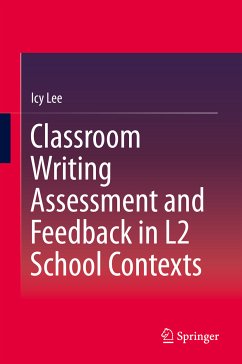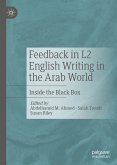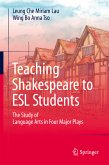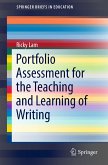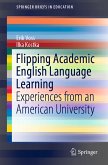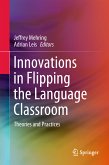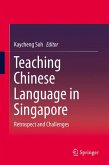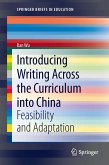While assessment and feedback tend to be treated separately in the L2 writing literature, this book brings together these two essential topics and examines how effective classroom assessment and feedback can provide a solid foundation for the successful teaching and learning of writing. Drawing upon current educational and L2 writing theories and research, the book is the first to address writing assessment and feedback in L2 primary and secondary classrooms, providing a comprehensive, up-to-date review of key issues, such as assessment for learning, assessment as learning, teacher feedback, peer feedback, portfolio assessment, and technology enhanced classroom writing assessment and feedback. The book concludes with a chapter on classroom assessment literacy for L2 writing teachers, outlines its critical components and underscores the importance of teachers undertaking continuing professional development to enhance their classroom assessment literacy. Written in an accessible style, the book provides a practical and valuable resource for L2 writing teachers to promote student writing, and for teacher educators to deliver effective classroom writing assessment and feedback training. Though the target audience is school teachers, L2 writing instructors in any context will benefit from the thorough and useful treatment of classroom assessment and feedback in the book.
"A book on L2 writing assessment that truly is useful for teachers, school administrators, and students' learning. Educators around the world, heed these well-founded insights."
Alister Cumming, University of Toronto
"This book carefully synthesizes two critical aspects of writing instruction--classroom assessment and feedback from various sources--that are often relegated to "separate" chapters or even books on how to teach writing to second language (L2) students. Professor Lee shows how a formative, supportive approach to both assessment and feedback provides the foundation for successful writing instruction and student growth. In her usual clear and compelling style, Lee links current and existing research trends to specific pedagogical techniques, providing a practical and accessible resource to in-service and pre-service teachers. Though the main audience is teachers at the primary and secondary levels, L2 writing instructors in any context will benefit from this thorough and useful treatment of these essential topics."
Dana Ferris, University of California, Davis
Dieser Download kann aus rechtlichen Gründen nur mit Rechnungsadresse in A, B, BG, CY, CZ, D, DK, EW, E, FIN, F, GR, HR, H, IRL, I, LT, L, LR, M, NL, PL, P, R, S, SLO, SK ausgeliefert werden.
"This book is neatly organized and readable and provides L2 school teachers practical tips and suggestions on classroom writing assessment and feedback. ... this book is not just about assessment and feedback; it actually deals with how to teach writing, where teaching, learning, feedback, and assessment are all connected." (Fumie Togano, JALT Journal, Vol. 41 (2), November, 2019)
"The book is a valuable resource, providing guiding principles and detailed procedures for effective classroom writing assessment, abundant examples of feedback forms, scoring rubrics, assessment sheets, evaluation forms, and a rich list of references. ... It is well written with lucid language and it is easy to follow with uniform structure; for example, each chapter begins with an introduction of key terms and ends with a concise summary." (Tarun Sarkar And Xiangdong Gu, tesol Quarterly, Vol. 52 (2), 2018)
"The book is a valuable resource, providing guiding principles and detailed procedures for effective classroom writing assessment, abundant examples of feedback forms, scoring rubrics, assessment sheets, evaluation forms, and a rich list of references. ... It is well written with lucid language and it is easy to follow with uniform structure; for example, each chapter begins with an introduction of key terms and ends with a concise summary." (Tarun Sarkar And Xiangdong Gu, tesol Quarterly, Vol. 52 (2), 2018)
Es gelten unsere Allgemeinen Geschäftsbedingungen: www.buecher.de/agb
Impressum
www.buecher.de ist ein Internetauftritt der buecher.de internetstores GmbH
Geschäftsführung: Monica Sawhney | Roland Kölbl | Günter Hilger
Sitz der Gesellschaft: Batheyer Straße 115 - 117, 58099 Hagen
Postanschrift: Bürgermeister-Wegele-Str. 12, 86167 Augsburg
Amtsgericht Hagen HRB 13257
Steuernummer: 321/5800/1497
USt-IdNr: DE450055826
Bitte wählen Sie Ihr Anliegen aus.
Rechnungen
Retourenschein anfordern
Bestellstatus
Storno

